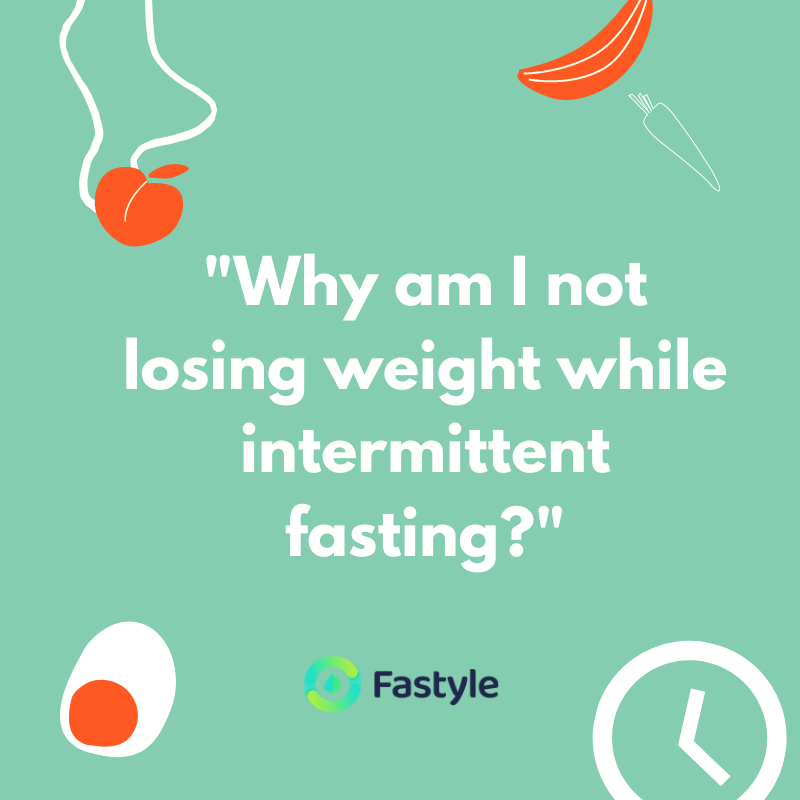As one of the developers of Fastyle, an intermittent fasting tracker providing professional tips to fasters, it’s also one of the leading responsibilities to reply to our users whenever any issue occurs to them concerning intermittent fasting.
Lately, I’ve been always asked “Why am I not losing weight while intermittent fasting?”. Although weight loss is not the only purpose of their doing intermittent fasting and it’s not the only advantage of it as well, fasters are always challenged by slow or unobvious effect on weight loss.
Intermittent fasting is a natural way of life our ancestors kept conforming to when food was insufficient. It’s pretty easy to start it while it’s equivalently easy to do it wrong. That’s why this article is here.
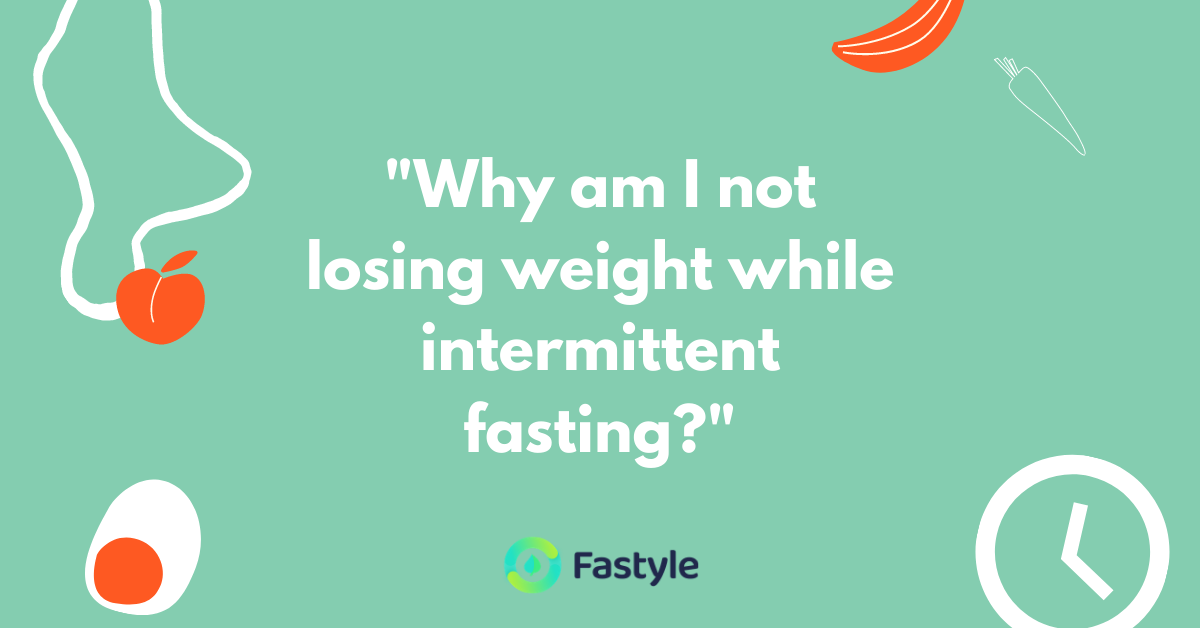
How Exactly does Intermittent Fasting Work for Weight Loss?
Intermittent fasting doesn’t limit the food types you’re going to consume but the time when you should eat. For example, a 16:8 diet plan, the top common diet plan of intermittent fasting, allows people to eat during the 8 hours of feasting and stop them eating during the 16 hours of fasting. When it comes to what exactly they can eat, there’s no specific requirement.
Let your body have enough time to digest and have a rest, which is the leading principle of intermittent fasting for its weight loss function.
Generally speaking, your body usually goes through the following phases as you eat food:
Blood Sugar Rises (in 0 to 4 hours)
Depending on what you eat, your blood sugar begins to rise about 10 to 15 minutes after you eat and then remains at a higher level for about 4 hours. This is a normal body response after a meal.
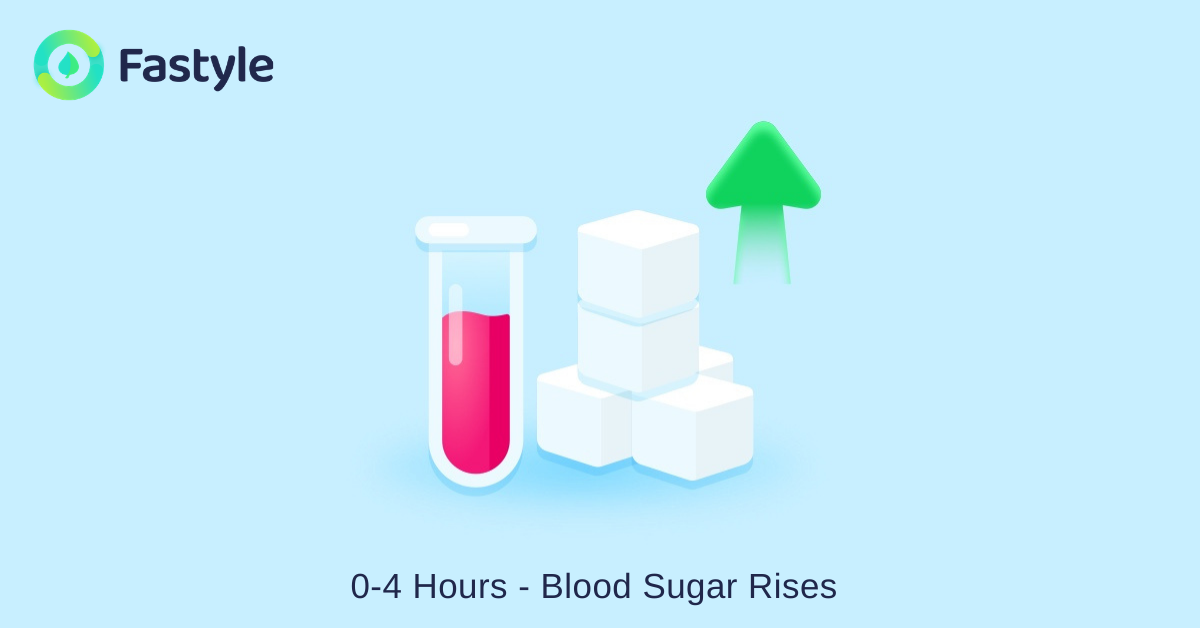
Blood Sugar Drops (in 4 to 8 hours)
Hours after a meal, your blood sugar begins to drop because the glucose from the food you’ve eaten has been either used for energy or stored in your body for later use.
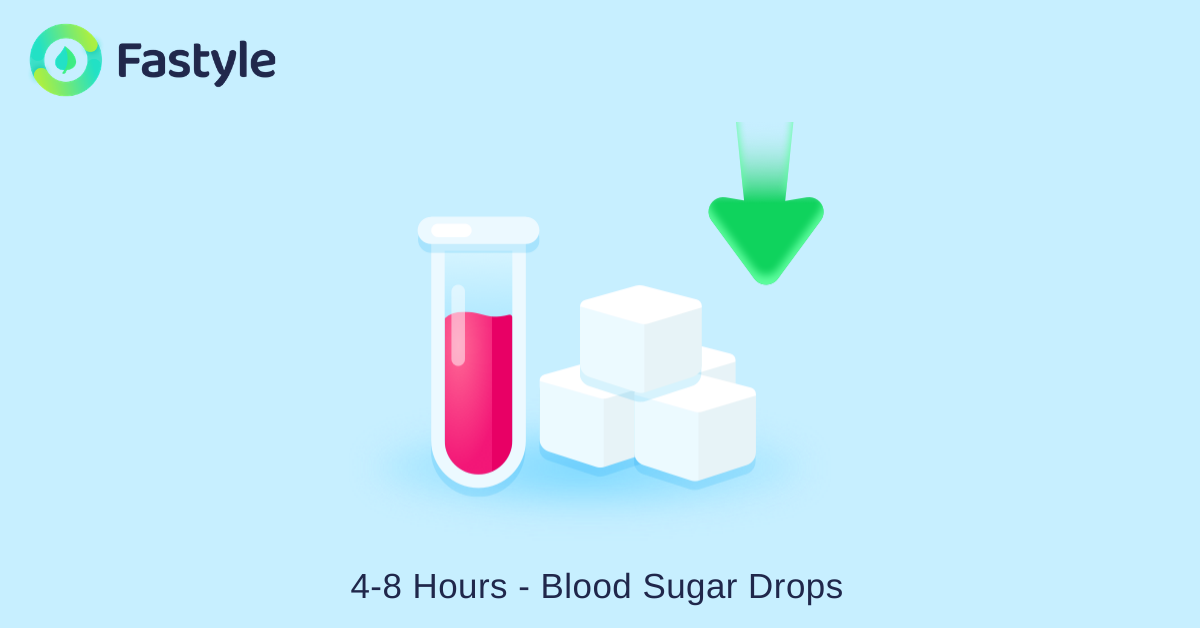
Blood Sugar Settles Down (in 8 to 12 hours)
As your blood sugar goes down, your body releases stored carbohydrates for energy and to help stabilize blood sugar.
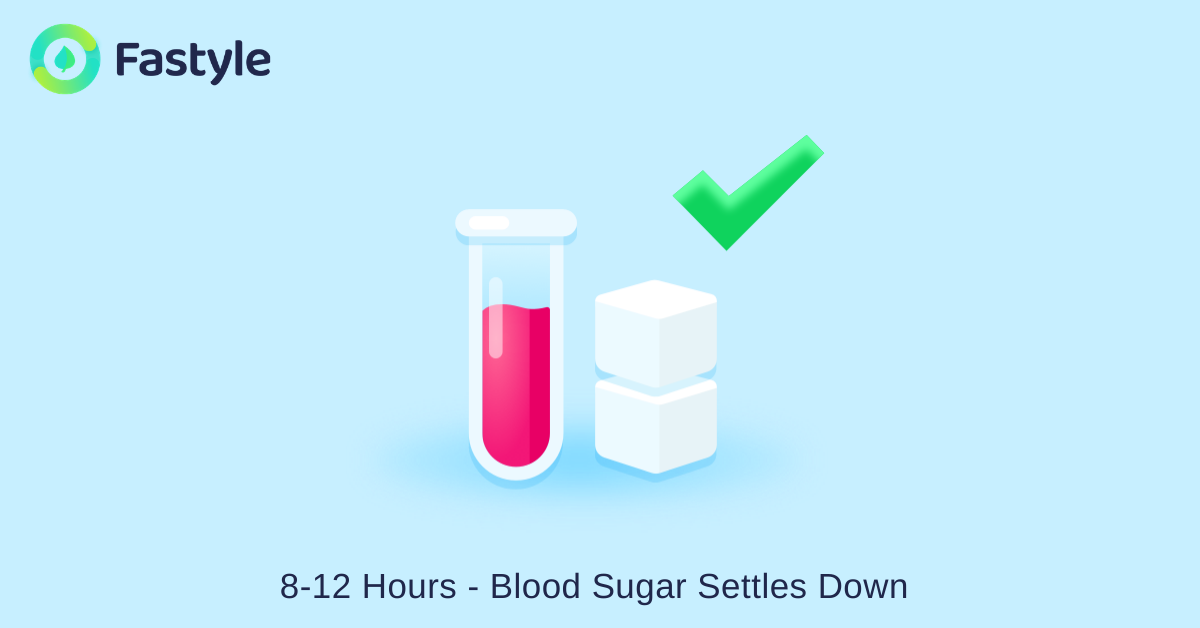
Fat Burning (in 12 or more hours)
As your body stops burning food or stored carbohydrates, it needs to find another source of energy. During this phase, your body will burn fat to provide energy.
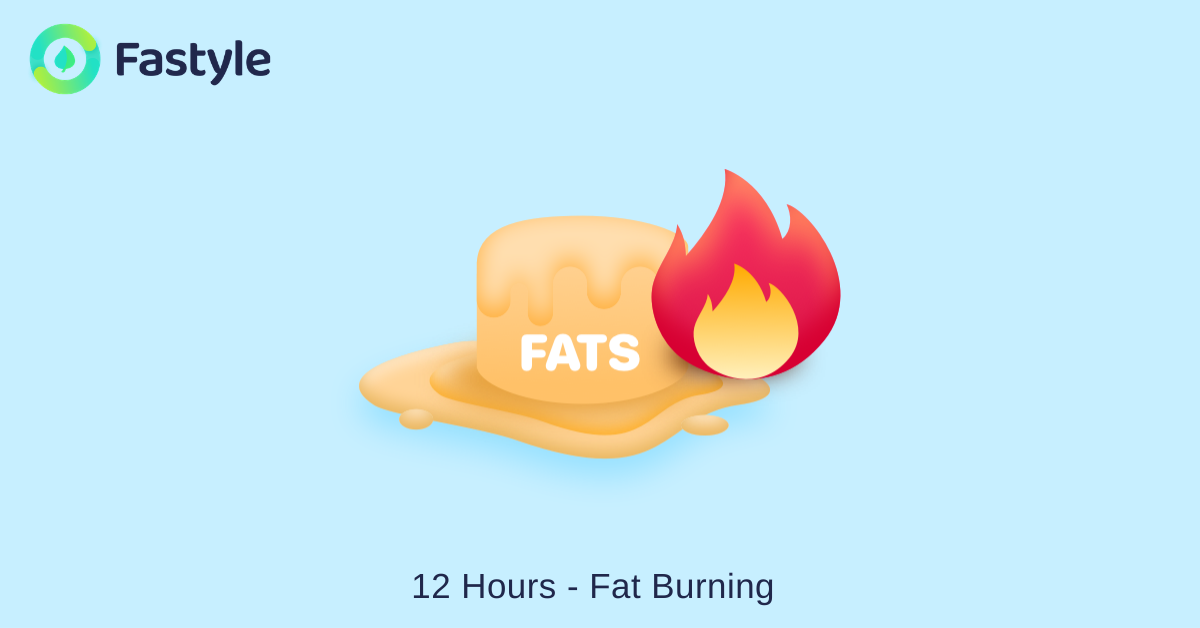
Ketone Levels Rise (in 13 hours)
As your body fat is being burnt, the fatty acids will be converted into ketone bodies. As long as you continue through this phase, your ketone level will keep uprising.
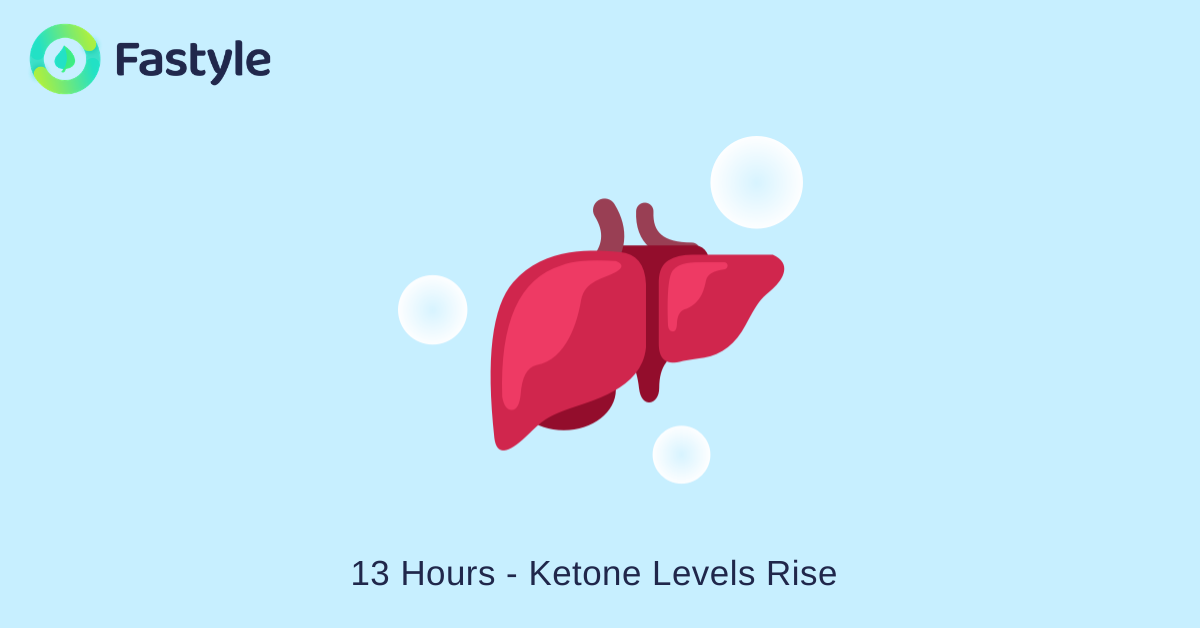
Autophagy (in 24 hours)
Autophagy, also known as cell clean-up, is the process of getting rid of cells that are damaged or dysfunctional.
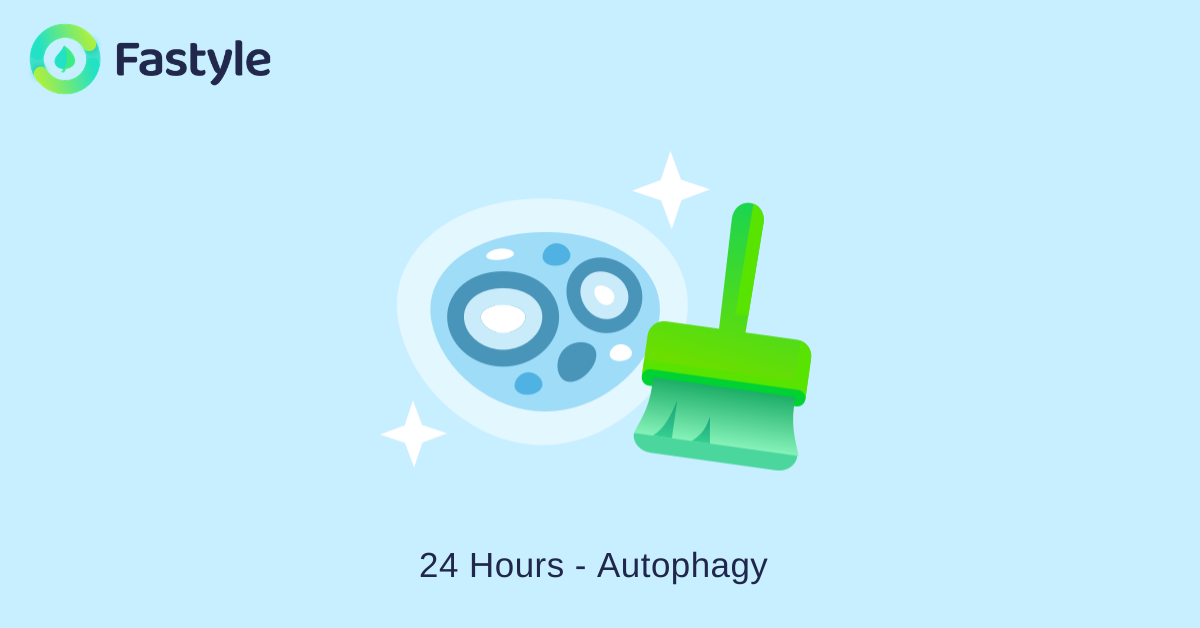
Based on the change occurring to your body after you eat mentioned above, it’s easy to see at least 12 hours is needed to completely digest your previous food before the next meal arrives. Sufficient time should be left between meals to reduce the fat stored in your body. However, let’s recall our 3 meals in a day. Breakfast usually arrives at around 7:30, lunch at 12:00 and dinner at 19:30. Apparently, there’s not enough time for the body to totally burn the fat but an increasing amount of fat keeps being stored in the body.
How Long does it Usually Take for Intermittent Fasting to Start Working for Weight Loss?
Well, it depends.
Many factors should be considered when it comes to the exact length of time for intermittent fasting to work for weight loss, including:
- Starting weight;
- Intermittent fasting diet plan;
- The way of doing intermittent fasting;
- The mount and type of food you eat during the fasting window.
Your Starting Weight
It’s far easier to lose weight from a huge weight than a big one. The closer your weight comes to your ideal weight, the slower the weight loss will be. Therefore, check the phase of your weight loss journey first, from a starting point or near the finish line.
Intermittent Fasting Diet Plan
Multiple diet plans are available in the domain of intermittent fasting, like 16:8, 5:2, OMAD, etc. Different diet plans may work to different extent on you.
How to Do Intermittent Fasting
The same intermittent fasting plan may work differently on different people because of the different ways that are used. So, it also contributes to the result of intermittent fasting on weight loss.
What and How Much You Eat during Feasting Window
Although there’s no rigorous limit on the food during the feasting window you should eat, the type and amount of food you consume during the feasting window will make a difference. If you consume a low amount of carbohydrates, it’s easier for intermittent fasting to work.
Top Possible Reasons You’re Not Losing Weight with Intermittent Fasting and Solutions
You’re consuming high calories during the eating window.
High calories intake gains you weight. Intermittent fasting helps you lose weight by rearranging your diet schedules and dieting habits. High calories intake with a 16:8 time schedule won’t make a difference on your weight loss.
Solutions:
To control calories intake, you can either figure out the calories of each meal or conform to professional intermittent fasting recipes that are available on Fastyle app.
You’re eating “wrong” food during the eating window.
The “wrong” food here refers to that isn’t beneficial for intermittent fasting, including less-nutritious food, less-fiber food, high-salt or high-fat food, etc. If you always have fast food like fries or burgers, you’ll surely suffer from weight gain no matter intermittent fasting is applied or not.
Solutions:
Do select healthy food and cook it in a healthy way during your eating window. The right food friendly with intermittent fasting covers fresh fruit and vegetables, foods containing high omega-3, etc.
You’re using an IF diet plan that isn’t fit for you.
Just as mentioned above, multiple intermittent fasting plans exist but it’s difficult to find an appropriate plan for you. If you haven’t lost much weight with correct food and intermittent fasting principles strictly conformed to, you should consider changing your intermittent fasting diet plan.
Solutions:
Try a different diet plan instead.
You’re fasting for short time.
It’s not an easy job to kick intermittent fasting for beginners. Nevertheless, a short time of fasting doesn’t work enough on you if you strive to lose weight through intermittent fasting. 16:8 is fit for most beginners but may be insufficient for you.
Solutions:
Try a different intermittent fasting plan for longer fasting hours.
You’re not sleeping enough.
Enough sleep helps you reduce weight because sleep is beneficial for your body to burn fat on you. If you’re not losing weight dramatically with intermittent fasting, recheck your sleep case.
Solutions:
Guarantee enough hours of sleep at night and stay far away from digital products before sleep.
You’re drinking in a wrong way.
Most of time, people pay more attention to food but often neglect drinks. You’re allowed to drink healthy drinks during the fasting window including water, black coffee, tea, or lemon water. Alcoholic drinks and sweet drinks containing tons of sugar should be avoided.
Solutions:
Only drink intermittent fasting friendly drinks during the fasting window. Say bye to sweet drinks.
You’re hurrying.
Perhaps the effect of intermittent fasting hasn’t arrived at you.
Solutions:
Keep following intermittent fasting and wait.
FOLLOW US
